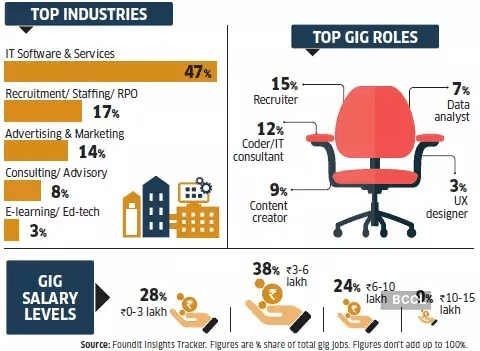The Rise of Contract Hiring: Advantages, Challenges, and its Impact on the Modern Workforce
Over the last decade, we have observed a paradigm shift in the world of employment. The once predominant full-time, permanent job model is being overtaken by more flexible work arrangements, prominently represented by contract hiring. So, what’s behind this surge in contractual employment, and what does it mean for today’s workforce? Let’s dive in.
A Brief Overview
Contract hiring, at its core, is when businesses bring on individuals for specific projects or a defined period. These positions may last anywhere from a few weeks to several years, with the understanding that employment concludes once the contract’s duration or purpose has been fulfilled.
Advantages of Contract Hiring
1. Flexibility for Employers and Employees:
Companies often have projects that require specialized skills or additional manpower for a limited time. Contract hiring provides a means to quickly onboard talent for specific needs without long-term commitment. On the flip side, employees enjoy the freedom to work on various projects, expand their portfolio, and avoid the monotony that can come with long-term roles.
2. Cost-Effectiveness:
Permanent employees come with added overheads – health benefits, pensions, training, and more. By hiring on a contract basis, companies can reduce these costs, translating to potentially significant savings, especially for startups or SMEs.
3. Rapid Adaptation to Market Dynamics:
The business environment is ever-evolving. Contract hiring allows firms to swiftly adapt to changing market conditions. If there’s a sudden need for expertise in a new technology or domain, companies can bring in a contractor with that specific skill set.
Challenges of Contract Hiring
1. Lack of Job Security:
For many contract workers, the uncertainty of their next gig can be stressful. Unlike full-time employees, they might not have a consistent income, making financial planning and stability more challenging.
2. Limited Career Progression:
While contractors can gain a wide range of experiences, they might miss out on hierarchical career progression within a company. The transient nature of their role might exclude them from leadership or long-term growth opportunities within an organization.
3. Potential for Skill Atrophy:
If contractors repeatedly take on similar projects, they might pigeonhole themselves into specific roles. Over time, this can lead to a stagnation of skills, limiting their marketability for diverse roles.
Impact on the Modern Workforce
1. Shift in Mindset:
The rise of contract hiring is fostering a more entrepreneurial mindset among workers. They are beginning to see themselves as ‘brands’, selling their skills and expertise to the highest bidder or the most intriguing project.
2. Increased Emphasis on Continuous Learning:
To remain competitive in the contractual landscape, there’s a need to continually upgrade skills and knowledge. This has led to a surge in professional development courses, workshops, and online learning platforms.
3. Evolving Company Cultures:
With a mix of permanent and contract staff, businesses are re-evaluating their organizational cultures. They are finding ways to integrate short-term team members and ensure everyone feels valued and included.
4. Rethinking Benefits and Compensation:
Given the unique needs of contract workers, some forward-thinking companies are experimenting with benefit packages tailored to them. This includes flexible work hours, project-based bonuses, or access to professional development resources.
In conclusion, the rise of contract hiring is indicative of a broader evolution in the world of work. While the traditional 9-to-5 job isn’t going extinct, there’s a growing appreciation for the flexibility, diversity, and adaptability that contract roles offer. Both employers and employees are navigating this landscape, weighing its advantages and challenges to define their place in the modern workforce. As with any significant shift, adaptation is the key, ensuring that as the dynamics of employment change, individuals and companies are poised to thrive.



